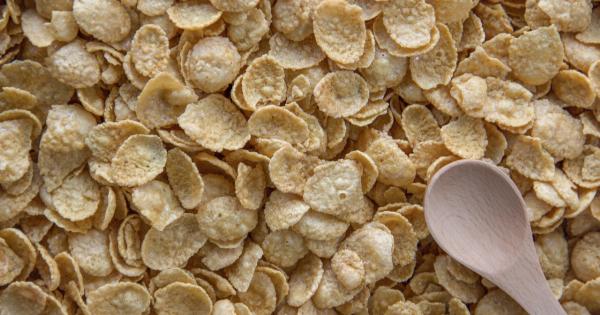Many of us are concerned about our body weight, and we often turn to diets to help us shed some pounds. However, not all diets are created equal. Some diets can actually make us gain weight instead of losing it.
In this article, we will discuss some of the diets that can backfire and why they are not effective for weight loss.
Low-fat diet
Low-fat diets have been popular for decades, with the belief that eating low-fat foods will help you lose weight. However, this is not always the case. In fact, some low-fat foods are high in sugar or refined carbohydrates, which can lead to weight gain.
Additionally, when you cut out fat from your diet, you may end up feeling hungry later. This can lead to overeating and binging on unhealthy foods.
Instead of following a low-fat diet, focus on consuming healthy fats like avocados, nuts, and olive oil in moderation.
Juice cleanses and detox diets
Juice cleanses and detox diets have gained popularity in recent years for their promises of rapid weight loss. However, these diets are not sustainable and can even be dangerous for some people.
Most juice cleanses involve consuming only fruit and vegetable juices for a few days to a week. While you may lose weight initially, you will likely gain it back once you consume solid foods again.
Additionally, some juice cleanses may lead to nutrient deficiencies and can be harmful to people with certain medical conditions.
Low-calorie diets
Low-calorie diets are often seen as a quick fix for weight loss. However, they can have the opposite effect. When you drastically reduce your calorie intake, your body may go into starvation mode and slow down your metabolism.
This can make it harder to lose weight in the long run.
Additionally, low-calorie diets may not provide enough nutrients for your body, leading to fatigue, dizziness, and other health issues. Instead of focusing on low calorie diets, aim to consume a balanced diet with whole foods and healthy portions.
Skipping meals
Skipping meals is often seen as a way to cut down on calories, but it can actually make you gain weight. When you skip meals, your body may compensate by overeating during your next meal or snacking on unhealthy foods later in the day.
Additionally, skipping meals can slow down your metabolism and lead to nutrient deficiencies. Instead of skipping meals, aim to eat small, balanced meals throughout the day.
Low-carb diets
Low-carb diets like the Atkins diet and the ketogenic diet have gained popularity for their promises of rapid weight loss. However, these diets can be difficult to sustain and can lead to weight gain in the long run.
Additionally, low-carb diets may restrict certain nutrients, leading to nutrient deficiencies and other health issues.
Instead of following a low-carb diet, aim to consume a balanced diet with healthy carbohydrates like whole grains, fruits, and vegetables.
Processed and packaged foods
Processed and packaged foods may be convenient, but they are often high in calories, sugar, and unhealthy fats. Consuming these foods regularly can lead to weight gain and other health issues.
Additionally, processed and packaged foods may not provide enough nutrients for your body. Instead of relying on these foods, aim to consume whole foods like fruits, vegetables, whole grains, lean proteins, and healthy fats.
Liquid diets
Liquid diets like meal replacement shakes and weight loss supplements may help you lose weight initially, but they are not sustainable and can lead to weight gain in the long run.
These diets may also be harmful to your health if consumed for long periods of time.
Additionally, liquid diets may not provide enough nutrients for your body. Instead of relying on these diets, aim to consume a balanced diet with whole foods and healthy portions.
High-protein diets
High-protein diets like the Dukan diet and the Paleo diet have gained popularity for their promises of rapid weight loss. However, these diets can be difficult to sustain and can lead to weight gain in the long run.
Additionally, high-protein diets may restrict certain nutrients, leading to nutrient deficiencies and other health issues.
Instead of following a high-protein diet, aim to consume a balanced diet with healthy proteins like lean meats, seafood, eggs, and plant-based sources like beans and nuts.
Conclusion
There are many diets out there that promise weight loss, but not all of them are effective. Some diets can even make us gain weight instead of losing it.
To achieve sustainable weight loss, it’s important to focus on consuming a balanced diet with whole foods and healthy portions.




























